Warning: The following post contains MAJOR SPOILERS for The Hunger Games: Mockingjay.
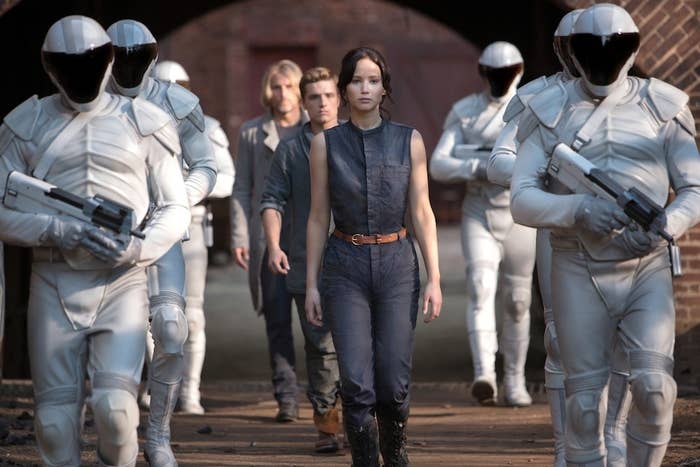
Even as the cast and crew of the Hunger Games franchise were busy promoting Catching Fire, they were already in the middle of making the final two films in the series, Mockingjay — Part 1 (out Nov. 21, 2014) and Part 2 (out Nov. 20, 2015).
But if they are not careful, they could be walking into utter catastrophe.
While Suzanne Collins' novel Mockingjay makes for gripping and compelling reading, as source material for the concluding chapters of a global mega-blockbuster franchise, let's just say it presents some significant — some might say perilous — storytelling hazards.
Not that the folks making the film exactly feel this way. "It becomes more of a specific two-pronged examination of a society at war, and also of the exploitation of the media and of celebrity," Jeffrey Wright — who plays the nerdy inventor Beetee — told BuzzFeed earlier this month. "Yeah, it is darker, but I think it becomes even more relevant. I think it becomes less abstract, and much more grounded in issues that we're all facing as a society at war now."
Jena Malone, who plays the cynical Johanna Mason, added, "Knowing that it's actually going to a place that is kind of a little bit more dark, or realistic, or authentic in the sense of the way the film series will end, it allows you to get even more real. It's not like trying to fit an inauthentic arc into a happy ending."
And if you were holding out hope that the filmmakers would be significantly changing Collins' story, let director Francis Lawrence disabuse you of that notion. "The truth is that we're making the book," he told BuzzFeed. "We're not reinventing the book in any way. These people, if they start out damaged in Catching Fire, they're much more damaged by the beginning of Mockingjay. And the movie does go to dark places. I will say too that part of why I love those is that Suzanne didn't pull any punches. I'm actually really happy to be doing Mockingjay because of that. I think that's the book that gives the whole series its meaning."
While there may not be major changes from the book to the Mockingjay movies, Lawrence did indicate that he was not averse to making some minor tweaks. "There are some new elements to it. I think one of the things is when you experience the movies vs. the book, the books are so inside Katniss' head; we're not in Katniss' head as much," he said. "We're not changing the book, and we're not messing with anything, [but] we are injecting some hope to it, and some warmth to it. And there will be some humor. And there's some surprises. So there's different layers that we're adding to it to make it richer."
And with that in mind, here is a completely unsolicited catalogue of all of the narrative land mines buried within Mockingjay's unrelentingly grim story — as well as possible ways of avoiding them.
Needless to say, everything below is riddled with ALL KINDS OF MAJOR SPOILERS that will likely ruin a great deal of the Mockingjay movies and will definitely ruin the final book in Collins' trilogy if you have yet to read it. Consider yourself warned!
1. Katniss becomes a passive participant in the events around her.
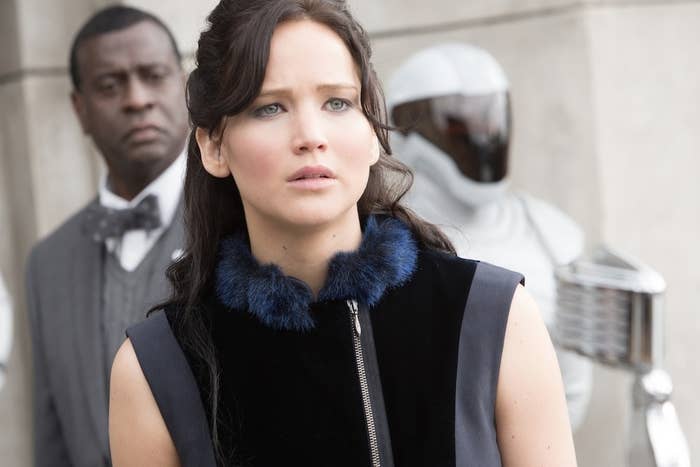
2. Finnick, Johanna, and especially Effie are AWOL too.
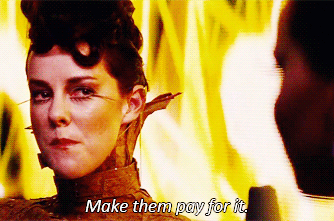

Finnick and Johanna both have some decent scenes, but for characters who loomed so large in Catching Fire — both the book and the film — their presence in Mockingjay often feels perfunctory.
But that's nothing in comparison to what happens, or doesn't happen, to Effie Trinket (Elizabeth Banks) — one of the biggest characters in the entire saga is shunted off to jail offscreen, and only appears in the story at the very end. This would be like the Harry Potter movies suddenly deciding that McGonagall should go to Azkaban for the entirety of The Half-Blood Prince and The Deathly Hallows.
Possible solution: Since the first two films expanded beyond Katniss' point of view, we could track Effie's descent into becoming a Capitol pariah, and see what life is like for her without makeup, wigs, and great frocks. As for Finnick and Johanna, like Katniss, they should just be allowed to participate in more of the main story instead of wallow on the sidelines.
3. Peeta is tortured, "hijacked," and tries to kill Katniss.
4. Gale ceases to be a romantic interest for Katniss, and they drift apart.
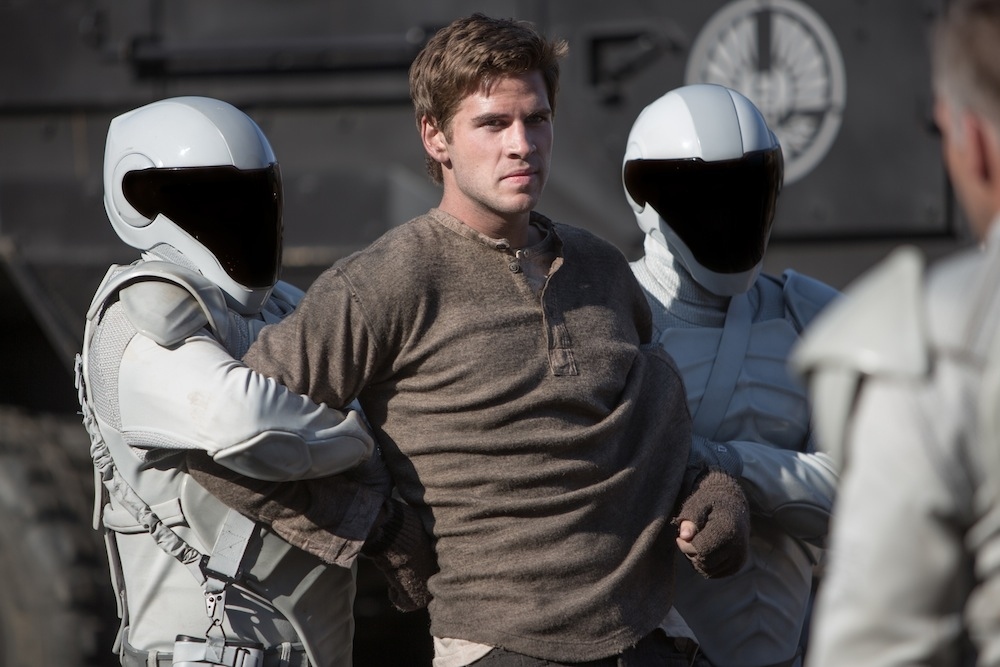
5. Finnick dies.
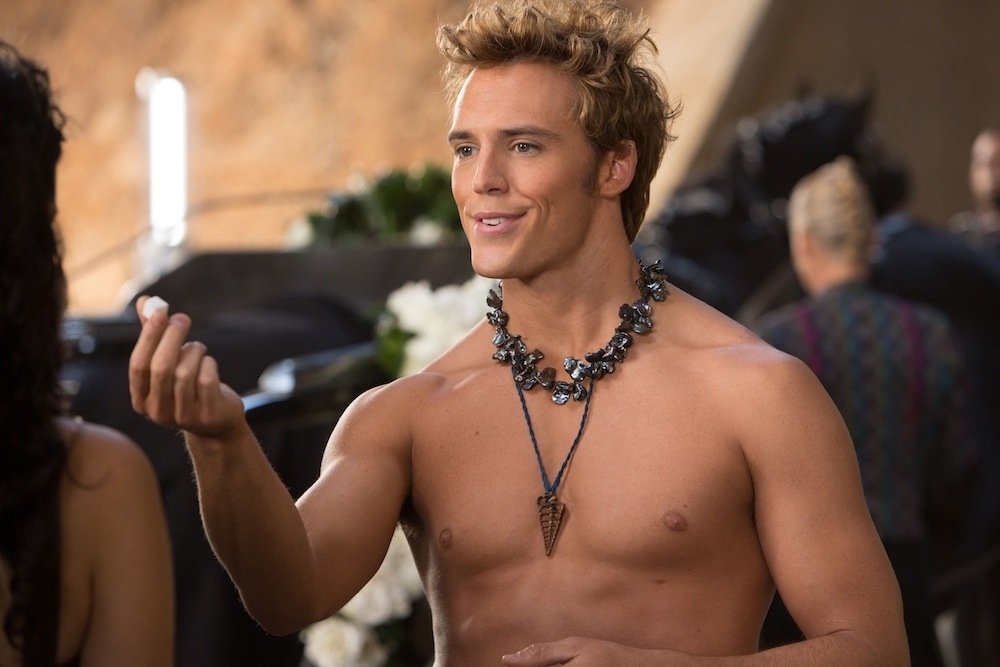
6. Squad 451's mission plays zero role in how the war ends.
7. Prim dies, and Gale likely killed her.
8. Katniss doesn't kill President Snow, kills President Coin instead, and then Snow simply dies off screen.
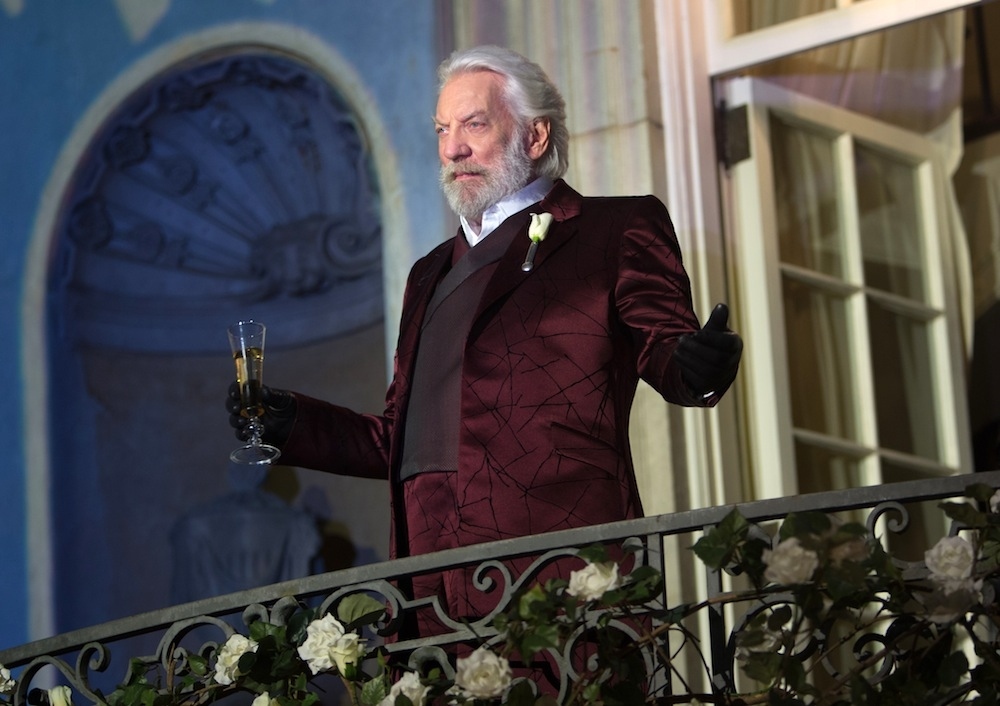
9. Katniss ends up with Peeta, a man who has repeatedly tried to kill her, and disappears to live with him and their children on the ashes of District 12.
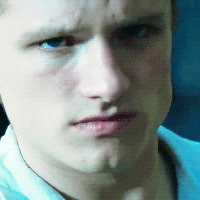

No role in helping to rebuild her country. No sense that maybe it's not the best idea to stay with a man who put his hands to her throat, regardless of whether he was brainwashed or not. And no control even over her long held desire not to have children.
There is a complicated idea tucked within all of this misery, that choosing to violently overthrow a totalitarian regime is itself a destructive act from which there is little hope of fully healing. But it is a mighty thin needle to thread without tipping into self-serious drudgery (like The Matrix Revolutions) or overblown bombast (like Star Wars: Episode III — Revenge of the Sith).
Possible solution: Francis Lawrence did say "we are injecting some hope to it," so let's take that to mean that Katniss forthrightly becomes the new governor of District 12, presiding over a period of peace and prosperity while understanding that her best path to healing and happiness is to leave both Gale and Peeta behind and forge her own future by herself. There. Was that so hard?

